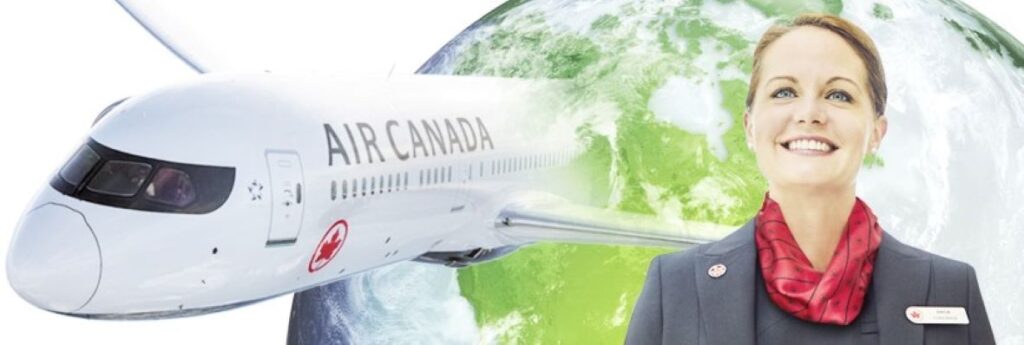Air Canada says it is committed to climate change and has set ambitious business targets to realize a goal of net-zero greenhouse gas emissions (GHG) throughout its global operations by 2050. In the nearer term, the airline has set “absolute” reduction targets of 20 and 30 percent (from 2019 baselines) respectively for flights and ground operations by 2030.
The airline will also invest $50 million in sustainable aviation fuel (SAF), and carbon reductions and removals.
“Economic growth and sustainability are equally important, and we have a strong track record for both,” says Air Canada President and CEO Michael Rousseau. “Despite the severe impact of the COVID-19 pandemic, we remain deeply committed to long-term sustainability. Climate change is critical, and we believe we can and must do more to address this for the future of our environment.”
Rousseau says “meaningful” climate considerations will be embedded into strategic decision-making at the company, as evidenced by the hard targets set for 2030, and which will support Canada’s leadership on climate change. He adds that fares for customers will continue to remain “affordable.”
Key carbon reduction pillars identified by the airline include:
Fleet and operations: Air Canada will continue deploying its newly modernized and energy efficient Airbus A220 and Boeing 737 MAX narrow-body fleets that are more efficient and expected to average approximately 20 percent less fuel consumption per seat and emit approximately 20 percent less CO2 and 50 percent less nitrogen oxides than aircraft they replace, continue to integrate climate factors in route and fleet planning, phase out carbon-intensive ground equipment, further advance electric vehicles and seek other electrification opportunities.
Innovation: Further evaluate the viability, safety and performance of new electric, hydrogen or hybrid operational technologies, and other innovations such as short-haul transportation opportunities and electric drones to complement and support Air Canada’s global business network.
Sustainable Aviation Fuels and clean energy: To further its work on sustainable aviation fuels, Air Canada will invest $50 million in SAF and other low carbon aviation fuel (LCAF) development, evaluate the practical applications of renewable energy sources such as biogas and renewable electricity, and energy transition measures.
Carbon Reductions and Removals: Air Canada will explore carbon negative emission technologies and other direct emission reduction and removal strategies in addition to further developing its carbon offset strategy for CORSIA compliance, customer offerings and more.
Since 1990, Air Canada says it has improved fuel efficiency by 43 percent and from 2016 to 2019 has reduced more than 135,000 tonnes of GHG from its air operations through fuel efficiency initiatives and its work in fuel sustainability.
Since 2007, a long-standing program offering customer carbon neutral purchase options has resulted in more than 60,000 tC02e of emissions offset.
The airline says further details of its climate plan will be posted on aircanada.com in the coming weeks.

